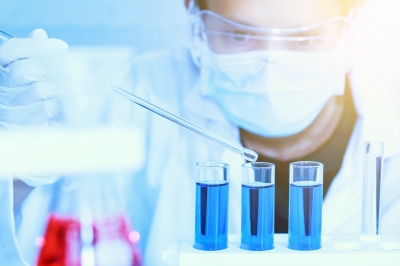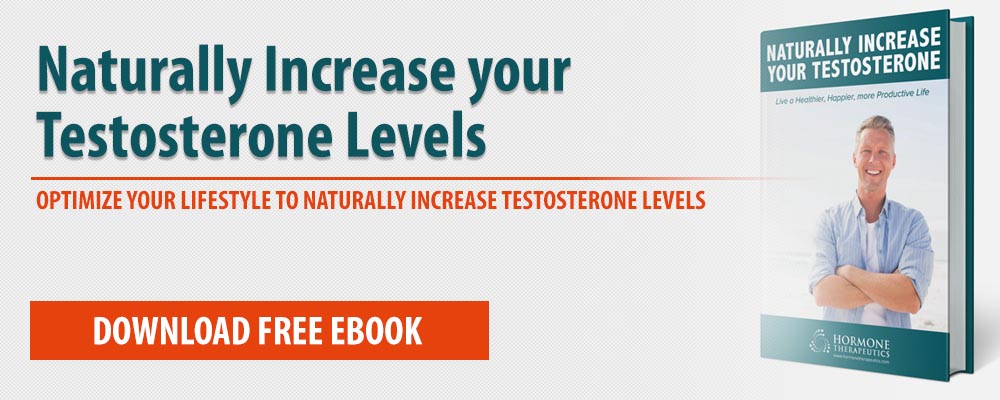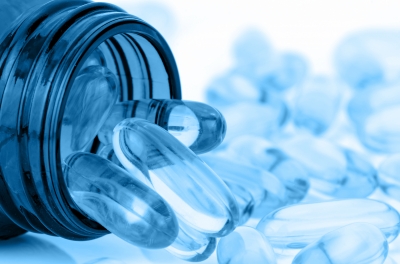Top 7 Best Testosterone Boosting Foods
The proper, healthy Man Diet is absolutely key to not only good, sustainable health and longevity, but also to maintaining a viably productive and powerful testosterone level. And we say Man, because the nutritional facts are that we males require a distinctly differing amount of similar foods than the fairer sex, while also requiring a differing variety of the best testosterone boosting foods for our optimal testosterone health. Top 7 Best Testosterone Boosting FoodsOf course our Top 7 Superfoods and testosterone boosting foods are healthy and nutritious for everyone, but men in particular should pay special attention. Introduce these foods to your diet regimen, and you’ll feel the results right away.Garlic
This Old School herb and Paleo-Superfood is perhaps one of the healthiest overall ingredients you can add to any diet regimen. Excellent as an immune system booster, garlic is an all-natural additive that has been shown to boost testosterone levels. In addition to its many health benefits, garlic is just plain delicious!Pills and powders are OK, but eating real garlic is best.Coconuts
A key source of healthy monounsaturated fats, the delicious coconut will help boost your testosterone levels without packing on the blubber. In addition, you need not worry over any negative cardiovascular effects from this hard-shelled, hairy nutrition monster. In smoothies, with desserts, in milks, coconuts are a reliable testosterone booster.And don’t forget coconut oil as a cooking additive!Avocados
A very simple equation is less cholesterol equals more testosterone, and the awesome avocado is a full of cholesterol-busting good fats that will allow the testosterone to grow, as well keep your arteries in good working order.Grapes
Grape skins are loaded with all-important resveratrol (a plant-based polyphenol), which plays a crucial role in overall sperm health and motility with a corresponding increase in Testosterone levels. In addition, emerging research is finding that resveratrol, taken in large amounts, just may be a longevity super-additive. So eat grapes and live longer and healthier.Red Meat
A very simple equation is less cholesterol equals more testosterone, and the awesome avocado is a full of cholesterol-busting good fats that will allow the testosterone to grow, as well keep your arteries in good working order.Honey
An excellent sugar substitute, honey is loaded with nitric oxide and boron, an important testosterone boosting mineral. Nitric Oxide is the key ingredient to many ED drugs as it dilates the blood vessels and promotes better blood flow for an erection.Eggs
As we previously mentioned, the Omega-3 rich egg is also a protein powerhouse and a sure testosterone firecracker!Here is one extra one that doesn’t boost testosterone but helps you manage your Estrogen levels!!Cabbage is rich in indole-3-carbinol, a metabolic chemical that effectively flushes any floating estrogen from your system and as a result, lets your testosterone run wild. It doesn’t matter if your tastes run to kimchi or corned beef and cabbage. Just get that leafy goodness in you!Contact Us
If you’re ready to increase your testosterone levels, contact us today to schedule a free consultation.Top 7 Best Testosterone Boosting Foods
Hormone Therapeutics April 18th, 2023
Posted In: Health & Wellness, Testosterone Therapy
Tags: arteries, avocados, coconuts, diet, ED, eggs, erection, garlic, grapes, honey, indole-3-carbinol, lean, monounsaturated fat, muscle, natural testosterone therapy, nitric oxide, Omega-3, paleo, polyphenol, red meat, resveratrol, superfoods, testosterone, testosterone boosting foods, testosterone diet, testosterone foods
Wondering About Low T? Here are the Low Testosterone Symptoms You Should Know
Do you keep noticing commercials about Low Testosterone symptoms, or Low T, and wonder what exactly they are talking about? Are you wondering if you have Low T? We have yet to meet anyone nearing 40, or older, who sees these commercials and can consistently say I never feel like that with the same pep I did when I was younger.For healthy men, testosterone peaks at age 19 and goes down about 1-2% a year for the rest of your life. We are living 64% longer today than we were just one century ago and different parts of our body age faster than other. An unbalanced or depleted endocrine system has so many men are suffering from the symptoms of Low Testosterone. . . but they don’t have to suffer from what so many people just write-off as normal aging.What is Testosterone?
Testosterone is a naturally occurring and very potent hormone produced in large amounts by all males (and in much smaller amounts in females). Production begins in the womb and then gradually increases for weeks from birth.Initially, it fortifies the development of male genitalia, then gradually affects every vital physiological system (muscular, circulatory, skeletal, reproductive, etc.) After reaching physical maturity, testosterone plays a major role in the healthy development of male sexuality. Testosterone levels drastically surge during the onset of puberty. Levels peak at 19, then level o and begin to drop by the mid-30s, by about 1% per year.What are the Low Testosterone Symptoms or issues from Low T?
Except in cases of hypogonadism (medically low testosterone) when it occurs much earlier, most men begin to feel many of the symptoms of low testosterone by their 40s. It’s one reason why our physical and mental capabilities begin to diminish as we age, and it may even contribute to the following life and relationship altering conditions of Low T:- Loss of Muscular Mass and Strength
- Reduction in Bone Density
- Loss of Skin Elasticity
- Hair Loss/Male Pattern
- Baldness
- Erectile Dysfunction
- Depression
- Fatigue
- Loss of Concentration or Memory
- Weight Gain
- Gynecomastia
- Hot Flashes
- Lower Sex Drive
- Urinary Problems
- Sleep Problems
- Irritability
- Night Sweats
- Hypogonadism
- Adrenal Fatigue
- Thyroid Health
Wondering About Low T? Here are the Low Testosterone Symptoms You Should Know
Hormone Therapeutics April 13th, 2023
Posted In: Health & Wellness, Testosterone Therapy
Tags: Andropause, hypogonadism, irritable male syndrome, low t, low testosterone, low testosterone symptoms, male sexuality, testosterone deficiency
Do Creatine and testosterone work? A Comprehensive Guide for Men Exploring Testosterone Replacement Therapy and the Benefits and Risks of Creatine Supplementation
Do creatine and testosterone work? Understanding the Benefits and Risks of Creatine and Testosterone Replacement Therapy for Men’s Health
Testosterone Replacement Therapy (TRT) is a popular treatment option for men who experience symptoms of low testosterone, such as fatigue, low sex drive, and decreased muscle mass. Along with TRT, many men also explore various supplements to support their overall health and fitness goals. One such supplement that has gained significant attention in recently is creatine. Creatine is a naturally occurring compound found in small amounts in certain foods and is also available in supplement form. It is often used by athletes and fitness enthusiasts to enhance performance and build muscle. In this article, we will explore the benefits and risks of creatine, and whether it should be used along with TRT or on its own for optimal results.What is Creatine and What Does Creatine Do?
Creatine is a nitrogenous organic acid that is produced naturally in the body by the liver, kidneys, and pancreas, and is also obtained from certain foods like meat and fish. It plays a crucial role in the production of adenosine triphosphate (ATP), which is the primary source of energy for muscle contractions. When creatine is ingested, it is stored in the muscles in the form of phosphocreatine, which can be rapidly converted into ATP during high-intensity exercise or physical activity.Benefits of Creatine for Health:
- Muscle Building: One of the main reasons people use creatine is its potential to increase muscle size and strength. Research has shown that creatine supplementation can enhance muscle performance during high-intensity, short-duration activities like weightlifting and sprinting. It may also help to improve muscle recovery and reduce muscle damage, making it an attractive option for those looking to build muscle mass.
- Exercise Performance: Creatine has been shown to increase exercise performance, especially during short-duration, high-intensity activities. It has been found to help athletes generate more power and perform more repetitions during weightlifting, sprinting, and other similar activities.
- Brain Health: Creatine has also been found to have potential cognitive benefits. It is believed to improve cognitive function, memory, and attention, making it popular among students and individuals looking to enhance their cognitive performance.
- Cardiovascular Health: Some studies have suggested that creatine supplementation may have cardiovascular benefits, such as reducing blood pressure and improving endothelial function. However, more research is needed to fully understand the relationship between creatine and cardiovascular health.
- Bone Health: There is evidence to suggest that creatine may also have positive effects on bone health. Some studies have shown that creatine supplementation may increase bone mineral density, which could help improve overall bone health, especially in older individuals.
- Diet: Creatine is commonly found in meat and fish, and some individuals may choose to take creatine supplements as a way to ensure they are getting enough of this important nutrient, especially if they follow a vegetarian or vegan diet.
- Traumatic Brain Injury: Some studies have shown that creatine supplementation may have potential benefits for individuals who have suffered traumatic brain injuries. Creatine may help to reduce inflammation and oxidative stress in the brain, potentially aiding in the recovery process.
Risks of Creatine for Health:
- Digestive Issues: Some individuals may experience digestive issues, such as bloating, diarrhea, and stomach cramps, when taking creatine supplements. It is important to start with a low dosage and gradually increase it to avoid potential digestive issues.
- Kidney and Liver Health: There have been concerns about the potential impact of long-term creatine supplementation on kidney and liver health, as excess creatine is excreted by the kidneys and can put additional strain on these organs.
Creatine and Testosterone
Men with low testosterone levels may not be able to increase testosterone enough to improve symptoms of low T through diet and exercise alone. There are effective FDA-approved Testosterone Replacement Therapy protocols for men with low testosterone.If you suspect low T, schedule an appointment with our healthcare providers. You can also assess your T levels at home with Hormone Therapeutics. If your tests reveal that you have low T, our team can discuss testosterone treatment options with you.Creatine has little effect on testosterone levels. Creatinine can improve athletic performance and muscle growth. Creatine can also help improve brain, bone, and cardiovascular health. Download our free eBook on How to Naturally Increase your Testosterone levels through diet, exercise, stress, sleep and lifestyle changes, or you can explore TRT with a physicians.Do Creatine and testosterone work? A Comprehensive Guide for Men Exploring Testosterone Replacement Therapy and the Benefits and Risks of Creatine Supplementation
Hormone Therapeutics April 11th, 2023
Posted In: Health & Wellness, Low T Info, Testosterone Therapy
Clomid: What You Need to Know
Clomid: What You Need to Know! As men age, their bodies naturally begin to produce less testosterone, which can lead to a variety of symptoms such as decreased energy, decreased libido, and decreased muscle mass. Testosterone replacement therapy (TRT) is one option for treating low testosterone levels, but it is not the only option. Clomid, also known as clomiphene citrate, is a medication that is sometimes used as an alternative to TRT. In this article, we will explore what Clomid is, how it works, and the benefits and risks associated with its use.What is Clomid?
Clomid is a medication that is primarily used to treat female infertility by inducing ovulation. It is a selective estrogen receptor modulator (SERM), which means that it blocks the effects of estrogen in certain parts of the body while also stimulating the production of follicle-stimulating hormone (FSH) and luteinizing hormone (LH) in the pituitary gland. In men, FSH and LH stimulate the production of testosterone in the testes.How Does Clomid Work?
Clomid works by blocking estrogen receptors in the hypothalamus and pituitary gland, which leads to an increase in the production of FSH and LH. These hormones then stimulate the production of testosterone in the testes. By increasing testosterone levels in the body, Clomid can improve symptoms associated with low testosterone levels, such as decreased libido, decreased energy, and decreased muscle mass.Benefits of Clomid
There are several benefits associated with the use of Clomid for men with low testosterone levels. Some of these benefits include:- Increased Testosterone Levels: By stimulating the production of testosterone in the testes, Clomid can help to increase testosterone levels in the body.
- Improved Symptoms: Increasing testosterone levels can help to improve symptoms associated with low testosterone levels, such as decreased libido, decreased energy, and decreased muscle mass.
- Preserves Fertility: Unlike TRT, Clomid can help to preserve fertility in men by stimulating the production of sperm in the testes.
- Lower Cost: Clomid is often less expensive than TRT, making it a more affordable option for some men.
Risks of Clomid
While Clomid can be an effective treatment for low testosterone levels, there are also some risks associated with its use. Some of these risks include:- Vision Problems: In rare cases, Clomid can cause vision problems such as blurred vision, double vision, and floaters.
- Mood Changes: Clomid can cause mood changes in some men, including depression, anxiety, and irritability.
- Hot Flashes: Some men may experience hot flashes as a side effect of Clomid.
- Gynecomastia: In rare cases, Clomid can cause gynecomastia, which is the enlargement of breast tissue in men.
Clomid vs. Testosterone Therapy
While Clomid and TRT both aim to increase testosterone levels in the body, there are some key differences between the two treatments. One of the biggest differences is how they work to increase testosterone levels.TRT involves the use of exogenous testosterone, which is administered via injections, gels, or patches. This approach bypasses the body’s natural testosterone production and can lead to a decrease in the production of FSH and LH in the pituitary gland. This can result in decreased fertility and testicular shrinkage.Clomid, on the other hand, works by stimulating the body’s natural production of testosterone. By blocking estrogen receptors in the hypothalamus and pituitary gland, Clomid increases the production of FSH and LH, which in turn stimulates the production of testosterone in the testes. This approach can help to preserve fertilityClomid: What You Need to Know
Hormone Therapeutics March 25th, 2023
Posted In: Health & Wellness, Hormone Replacement
Low and High hematocrit increase cardiovascular risk for Testosterone patients
Hematocrit is the percentage of red blood cells in the blood. High hematocrit levels can increase the risk of cardiovascular disease, while low hematocrit levels can lead to anemia and other health problems. Testosterone replacement therapy (TRT) can affect hematocrit levels in some men. In this blog, we will explore how low and high hematocrit increase cardiovascular risk and how TRT can impact hematocrit levels.High Hematocrit increase Cardiovascular Risk
High hematocrit levels can increase the risk of cardiovascular disease, particularly in men. The excess red blood cells in the blood can cause the blood to become thicker and more viscous, making it more difficult for the heart to pump blood throughout the body. This can lead to an increased risk of heart attack, stroke, and other cardiovascular problems.Some of the factors that can contribute to high hematocrit levels include:- Dehydration: Dehydration can cause hematocrit levels to increase.
- Smoking: Smoking can increase hematocrit levels.
- Altitude: Living at high altitudes can cause hematocrit levels to increase as the body tries to adapt to lower oxygen levels.
- Genetic conditions: Some genetic conditions, such as polycythemia vera, can cause hematocrit levels to increase.
Low Hematocrit and Anemia
Low hematocrit levels can lead to anemia, a condition where there are not enough red blood cells in the blood. Anemia can cause symptoms such as fatigue, weakness, and shortness of breath. It can also increase the risk of complications during surgery and childbirth.Some of the factors that can contribute to low hematocrit levels include:- Iron deficiency: Iron is essential for the production of red blood cells, and a deficiency can lead to anemia.
- Vitamin deficiency: Vitamins such as B12 and folate are also essential for red blood cell production.
- Chronic kidney disease: Chronic kidney disease can lead to a decrease in the production of red blood cells.
- Chronic diseases: Chronic diseases such as cancer and HIV/AIDS can lead to anemia.
TRT and Hematocrit Levels
TRT can impact hematocrit levels in some men. Testosterone stimulates the production of red blood cells in the bone marrow, which can lead to an increase in hematocrit levels. However, not all men will experience an increase in hematocrit levels with TRT, and some may even experience a decrease.It is important for men receiving TRT to have their hematocrit levels monitored regularly to ensure that they are not at an increased risk for cardiovascular disease. If hematocrit levels become too high, TRT may need to be adjusted or discontinued to reduce the risk of cardiovascular problems.Lance Armstrong and elite cyclists using EPO to increase Hematocrit
Lance and other elite cyclists allegedly used EPO to increase their hematocrit levels to increase oxygen carried around their body and improve endurance and recovery. These cyclists also have incredibly developed hearts that could operate efficiently at higher Hct levels. Cyclists risks are different than men in their 40s and 50s trying to get back into shape and experiencing TRT related higher HCT and thicker blood.How TRT patients and clinicians can monitor and manage Hematocrit levels
We generally feel that <51 Hct levels is a green light, 51-54 is a yellow light and 54+ a red light. Not only are the levels important but if the levels are increasing and at what rate. If hematocrit levels are raising or elevated the best ways to manage them are:- Increase hydration and water consumption. We recommend never going into a test hydrated as the tests may result in a false positive and require actions to return to safer levels.
- Grapefruit and grapefruit seed extract help lower hematocrit.
- Donate blood. Donating a pint of blood can lower Hct 1-3% points. A double red blood cell or ‘Power Red’ donation can lower it further.
- Therapeutic phlebotomies are also donating blood. Many advanced blood centers have machines that strap your arm and run blood through it strip out red blood cells to a specific target Hct level around 42-43%. Blood donations can only happen so frequently and the therapeutics phlebotomy can reduce them dramatically.
Conclusion
Hematocrit levels can impact cardiovascular risk and overall health. High hematocrit levels can increase the risk of cardiovascular disease, while low hematocrit levels can lead to anemia and other health problems. TRT can impact hematocrit levels in some men, and it is important for men receiving TRT to have their hematocrit levels monitored regularly to ensure that they are not at an increased risk for negative cardiovascular events. By understanding the relationship between hematocrit and cardiovascular risk, men can make informed decisions about their health and wellbeing and improved conversations with their care team.Low and High hematocrit increase cardiovascular risk for Testosterone patients
Hormone Therapeutics March 21st, 2023
Posted In: Health & Wellness, Hormone Replacement, Uncategorized
Hormone Therapeutics wins Health and Employee Wellness Startup competition
Hormone Therapeutics, a telemedicine company using comprehensive testing for personal and employee health optimization, won the Launchpad Innovative Health Startup competition for employee wellness at the national Art and Science Health Promotional Conference.

Hormone Therapeutics Launchpad Victory Photo – Hunter Howard, Mike Motta, Mark Correia, Margaret Moore, John Harris, Michael ODonnell, Mary Gillis, James Hummer
Link to D CEO Healthcare article on Hormone Therapeutics Launchpad win
Launchpad Health and Employee Wellness Innovative Startup competition
The 27th annual conference was held at the Broadmoor Hotel in Colorado Springs, CO, with 1,500 healthcare professionals in attendance. Since 1989, the Art and Science Health Promotional Conference has aimed to narrow the gap between research and practice by “stimulating dialogue and engendering lasting relationship between practitioners and scientists.” The startup competition is held each year to promote recognize innovative health and wellness companies. Five finalists were selected to present to the audience and judges for the final stage of the competition.
“Winning this innovative healthcare startup competition was exciting to validate our strategy around a brand new approach to employee wellness and performance,” said Hormone Therapeutics CEO Hunter Howard. Our platform provides access to world-class testing, and physicians, in the home or office to optimize employee health and drive corporate performance. We launched a little over a year ago with a direct to consumer telemedicine model around the Hormone Replacement Therapy service line and kept adding service lines. We provide remote testing and can now send a nurse to any home, or office, in the country for genetic DNA testing, personalized food nutrigenomics, exercise physiology, blood, saliva, biome, telomere tests. We call this our 360 degree Health and Personal Optimization platform allowing us to expand to employee and concierge wellness.
Extending C-Suite Employee Wellness to entire company
Hormone Therapeutics highlighted an innovated approach to Employee Wellness extending the level of care previously only extended to the C-Suite throughout the organization. The Hormone Therapeutics team illustrated how corporations are spending $5,000 to $25,000 per executive per year sending C-level executives to wellness destinations boutiques like the Mayo, Cooper and Cleveland Clinics for annual two day checkups. These intensive programs give a great snapshot of the executives health on that day and then they are sent home with a list of items to work on and seen again the next year. The judges commented that the remote monitoring for personalized health and performance optimization could really change how we view employee wellness strategies.

The Hormone Therapeutics approach takes all of the same tests as the world-renowned organizations except for on-site MRI, cardiac stress and VO2 max and brings the rest to the corporation or even employee home for a fraction of the cost. The cost savings allows companies to extend this executive wellness plan throughout the organization. As important, Hormone Therapeutics national network of telemedicine physicians and lifestyle coaches work with the employees throughout the year with quarterly quantitative tests and goals and qualitative self evaluations rather than a one annual health snapshot.
Winning this innovative healthcare startup competition was exciting to validate our strategy around a brand new approach to employee wellness and performance. Our platform provides access to world-class testing, and physicians, in the home or office to optimize employee health and drive corporate performance. We launched a little over a year ago with a direct to consumer telemedicine model around the Hormone Replacement Therapy service line and kept adding service lines. We provide remote testing and can now send a nurse to any home, or office, in the country for genetic DNA testing, personalized food nutrigenomics, exercise physiology, blood, saliva, biome, telomere tests. We call this our 360 degree Health and Personal Optimization platform which allowed us to expand beyond individuals to employers.
Hormone Therapeutics wins Health and Employee Wellness Startup competition
Saleamp Design May 2nd, 2017
Posted In: Health & Wellness, Telemedicine
A Closer Look about Prohormones
 Many people don’t have any clue what prohormones are. Often, they mistake methylated oral anabolic steroids with prohormones. Methylsten, DMZ, Mithras, Trenavar among others are only steroids sold under different brands to confuse or trick authorities and consumers. The reason why methylated steroids are the worst kind is that methylation can damage the liver. Steroids taken orally are more hazardous compared to injectables. Real prohormones are the most ideal and safest option as they taken sublingually.
Many people don’t have any clue what prohormones are. Often, they mistake methylated oral anabolic steroids with prohormones. Methylsten, DMZ, Mithras, Trenavar among others are only steroids sold under different brands to confuse or trick authorities and consumers. The reason why methylated steroids are the worst kind is that methylation can damage the liver. Steroids taken orally are more hazardous compared to injectables. Real prohormones are the most ideal and safest option as they taken sublingually.
What are Prohormones?
Prohormones are known as precursors of a hormone. On the other hand, steroid hormones are made from cholesterol. Usually, prohormone are pro-DHT or pro-testosterone, which is the most abundant naturally-occuring male steroid hormone. Keep in mind that steroid hormones labelled as prohormone are not real pro-, they are only active steroid hormones.
Today, selling hormones is illegal, except for birth control pills. However, it is legal to sell supplements that are:
- One that naturally occurs in the body
- Not an active hormone
The legal and safe prohormones are the non-methylated form that your body generates in the process of producing testosterone and other highly potent hormones that are found in the body.
A real prohormone will be turned into the specific desired hormone when it enters your body. Every prohormone does unique task. So it is important that you choose the one intended for your goal. Keep in mind that all claims are 100 percent dependent upon proper exercise and diet. Also, consult your healthcare provider before taking any prohormone supplement.
Hormone Therapeutics Testosterone Therapy
Being a leading provider of low testosterone therapy solutions, we are always looking for newer ways to improve blood testosterone levels for our patients. We believe on improving testosterone levels with not only different testosterone treatment options that we offer, but also with diet, exercise, and therapeutic methods. Over the years, we have seen that our patients have greatly benefited from our Low-T therapy and treatment solutions, and our network of patients have grown across across all major cities of United States, including: Los Angeles, Houston, Miami, Chicago, Jersey City, and Seattle.
If you or a loved one is dealing with low blood testosterone levels, contact us today to get a free evaluation of your Low-T symptoms and see how our treatment options can help you with your low testosterone.
Sign up today and Get our ebook, ‘Naturally Increase Your Testosterone Levels’ absolutely FREE.

A Closer Look about Prohormones
Saleamp Design January 27th, 2017
Posted In: Health & Wellness
Tags: anabolic steroid, Anavar, DMZ, male steroid hormone, methylated, Methylsten, Mithras, non-methylated prohormones, prohormone supplement, prohormones, steroids, supplements, testosterone, Trenavar, weightloss
A Closer Look into Weight Loss Amino Acids
 Take caution when considering weight loss amino acid supplements that make unsupported claims. Nowadays, more and more amino acids such as branched-chain amino acids, are popularly sold for losing weight.
Take caution when considering weight loss amino acid supplements that make unsupported claims. Nowadays, more and more amino acids such as branched-chain amino acids, are popularly sold for losing weight.
But upon deeper look, it seems that the evidence supporting these claims is outdated and limited. A component of protein, amino acids are present in a wide range of foods. However, until a well-established and proven research is done supporting the effectiveness of weight loss amino acids, it is still best to follow proven strategies of losing weight. Fortunately, you can include whey protein into your diet to help in weight loss.
Weight Loss Amino Acids #1: Branched-Chain Amino Acids
Valine, leucine and isoleucine are the widely marketed weight loss amino acids today. Called as branched-chain amino acids (BCAA), it became popular as a weight loss aid after a limited research as published in the 1990s, suggesting that incorporating BCAA with a calorie-restricted diet promotes weight loss. In January 1997, a study was published by the International Journal of Sports Medicine, revealing that intake of BCAAs resulted in significant weight loss among elite wrestlers when combined with calorie restriction. However, a recent research had been published confirming that the finding of the previous study lacks many aspects, making it difficult to confirm whether BCAA supplement intake alone can effectively trigger weight loss.
Weight Loss Amino Acids #2: Phenylalanine
Phenylalanine is an amino acid often used to suppress appetite. But, like BCAAs, the evidence supporting this claim is still outdated and limited. While phenylalanine may work in controlling appetite, the only available evidence that was published to support this was in the 90’s. In June 1994, a study was published in the journal Metabolism, with findings that phenylalanine can trigger the release of the cholecystokinin, a hormone that has appetite-suppressing effect.
In the study, participants who took Phenylalanine 20 minutes before the meal ate less calories and reported feelings of fullness than the subjects who took a placebo. If such claims are true, then phenylalanine may provide weight loss benefits with its potential appetite-suppressing effect. But more studies that yield similar results are necessary to establish this claim.
Whey Protein
When producing cheese, the watery part of the milk called the whey is a high-quality protein that is commonly used to aid weight loss. This part is separated from the curd. You can easily find whey protein supplement, which is usually in powder form, sold in your local health food shops.
Whey is packed with nutrients such as bioactive peptides and calcium. It also contains weight loss amino acids such as BCAAs. When taken with a reduced-calorie diet, it may speed up fat loss and help build muscle mass. In a study published by the journal Nutrition and Metabolism in 2008, whey protein supplement caused more weight loss compared to diet alone.
A Closer Look on Weight Loss Supplements
If you think you need the extra help of a weight loss supplement, you need to know which is proven effective and which is not. Weight loss supplements that are effective are not magic pills that let you eat whatever you wish and still lose pounds. Of course, you still have to reformat your eating habits and exercise.
Better consult your healthcare provider for advice on which is safe to take. Orlistat is a non-prescription, FDA-approved drug for weight loss management. It can help in weight loss by blocking fat absorption in your digestive system. Another is the African mango extract. There are numerous studies published about it that is found to help weight loss and improve cholesterol.
Hormone Therapeutics Testosterone Therapy
Being a leading provider of low testosterone therapy solutions, we are always looking for newer ways to improve blood testosterone levels for our patients. We believe on improving testosterone levels with not only different testosterone treatment options that we offer, but also with diet, exercise, and therapeutic methods. Over the years, we have seen that our patients have greatly benefited from our Low-T therapy and treatment solutions, and our network of patients have grown across across all major cities of United States, including: Los Angeles, Houston, Miami, Chicago, Jersey City, and Seattle.
If you or a loved one is dealing with low blood testosterone levels, contact us today to get a free evaluation of your Low-T symptoms and see how our treatment options can help you with your low testosterone.
Sign up today and Get our ebook, ‘Naturally Increase Your Testosterone Levels’ absolutely FREE.

A Closer Look into Weight Loss Amino Acids
Saleamp Design January 24th, 2017
Posted In: Health & Wellness
Tags: African mango extract, amino acids, appetite suppressant, BCAA, branched-chain amino acids, isoleucine, leucine, orlistat, phenylalanine, valine, weight loss, weight loss amino acids, weight loss supplements, weight management, whey protein



 According to the latest study, dementia, including Alzheimer’s disease, has surpassed heart disease as the leading cause of death in England. In 2015, over 61,000 people died due to dementia, or 11.6 of all recorded deaths.
According to the latest study, dementia, including Alzheimer’s disease, has surpassed heart disease as the leading cause of death in England. In 2015, over 61,000 people died due to dementia, or 11.6 of all recorded deaths.